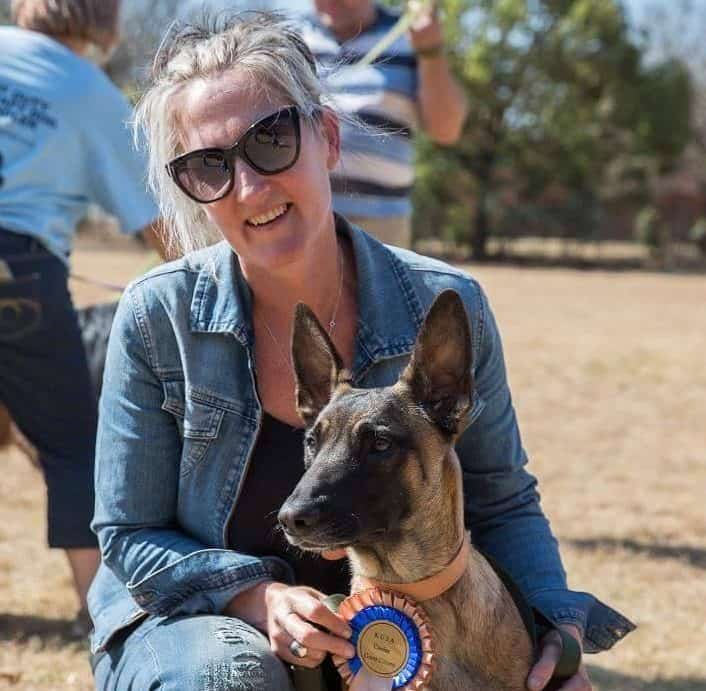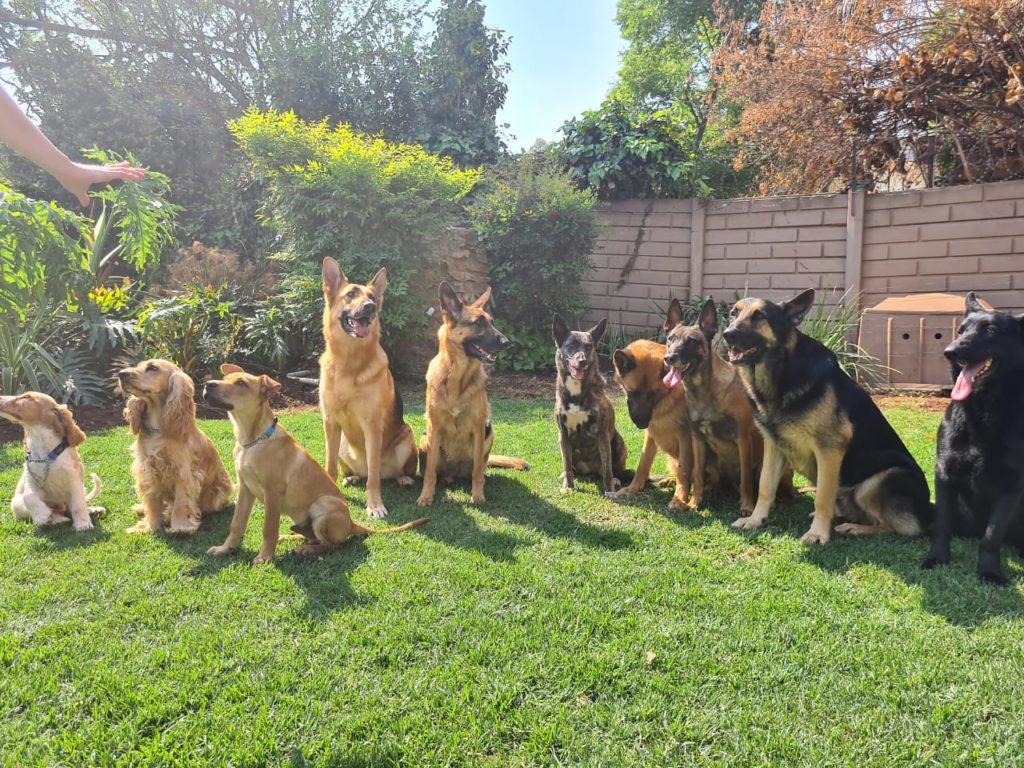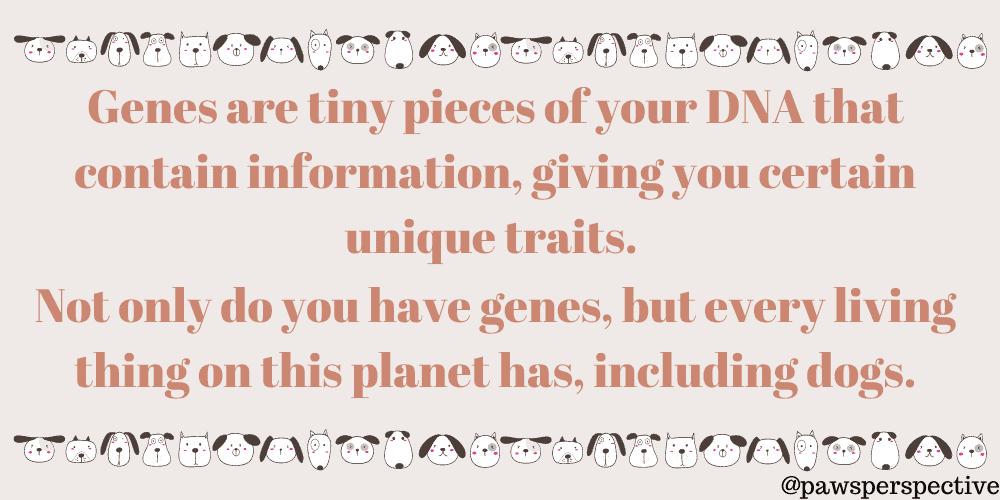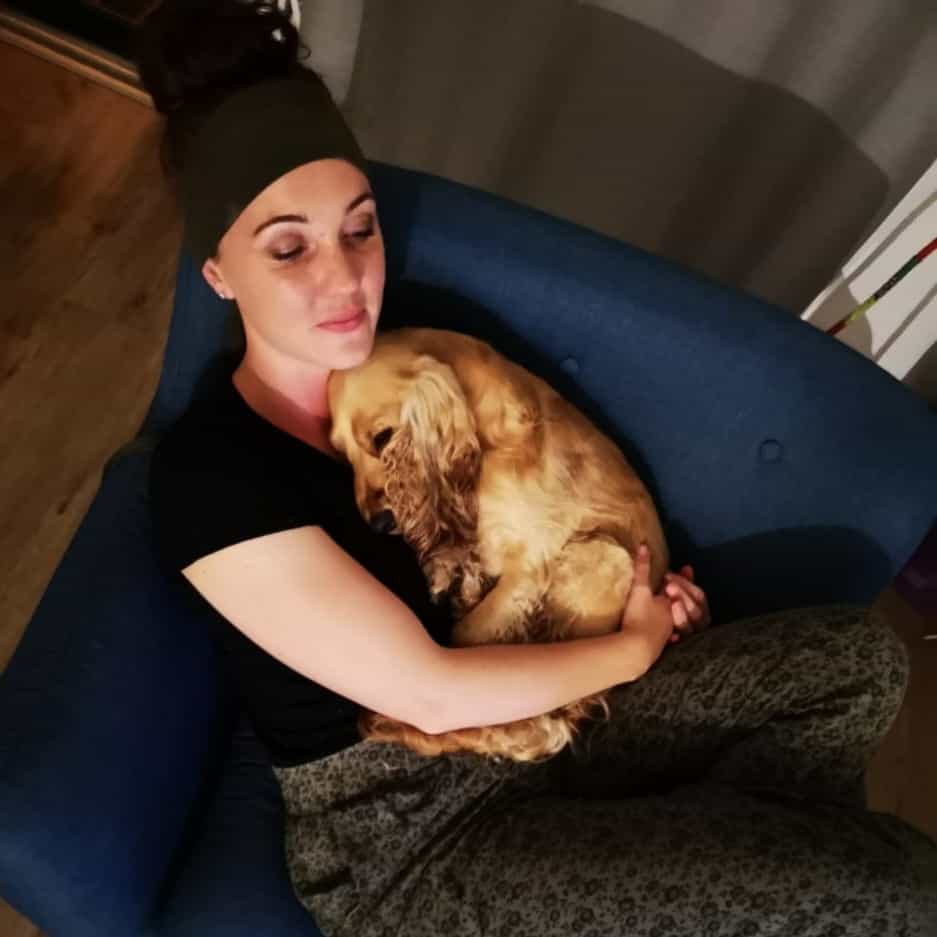One of the most prominent traits in dogs is loyalty, especially to their owners. As a dog enthusiast and someone coming from a dog-loving family, I saw time and again what dogs would do to please their owners. But what makes them so loyal in the first place?
As a pack, they could outnumber threats, hunt or scavenge for food, and stay warm on a cold night. However, since dogs were domesticated between 14,000 and 29,000 years ago and became our pets (one theory), they looked to us as their newfound pack.

But there must be more to it, right? Well, yes, there are more specific reasons why dogs are so loyal, including:
• They are social animals
• They have a pack mentality
• It’s their instinct to be loyal
• The shared canine-human history
• You meet their needs
• They form a friendship with their humans
• They are capable of empathy
• They feel happy with their owners
• They love their owners
As you can see, dogs are complex creatures with many variables regarding their loyalty. So, it’s not just a case of bribing your dog to follow you around. There’s more to it than that. Let’s have a look at each reason, shall we?

Dogs Are Social Animals
Dogs are social animals that thrive through interaction with their peers. When they engage in social activities, like play or caregiving, they develop a sense of loyalty. They get this from their ancestor, the wolf.
We can compare the wolf and the domestic dog to understand the link between sociability and loyalty. A book on the behavioral biology of dogs summarises the similarities and differences quite nicely!
Social Similarities Between the Wolf and the Domestic Dog
There are a few similarities between wolves and dogs. We can understand why dogs are social as we know these shared traits. These shared traits are:
• Engaging in play
• Greeting pack members
• Fearing unknown or known threats
• Preferring social contact over isolation
• Relying on rules to coordinate their lives
• Engaging in agnostic behavior
Agnostic behavior is “adaptive acts which arise out of conflicts between two members of the same species.”
E.S. Barratt
The shared traits between wolves and the domestic dog mean that they share the same form of loyalty. The more you socialize with someone, the more loyal you will become toward them (that is, if you like them). So, dogs are the same.
The social instinct they got from their ancestors means that dogs will thrive on interacting with the pack they find themselves in, whether it’s just you or your whole family. They will then instinctively develop an intense feeling of support or allegiance to you and your family.
Social Differences Between the Wolf and the Domestic Dog
The differences between the wolf and the domestic dog mean that dogs can form loyalty to humans just as quickly. The differences are:
| The Wolf | The Domestic Dog |
| Use more facial expressions to communicate to the pack members and other wolves. | Have less variety of facial expressions to communicate to other dogs and humans |
| Wolves don’t have a large variety in voice tone and pitch. They rely primarily on facial expressions and body language to get their point across. | A dog’s bark has more varieties in tone and pitch. This is believed to be because of dogs’ domestication, trying to mimic the type in the human voice. It’s an adaption to try and communicate with humans. |
The most exciting thing for me is that dogs evolved to socialize with humans. They immerse themselves into the human world, trying their best to communicate with you. It sets them apart from the wolf family, making them even more able to show loyalty toward their human pack.
Dogs Have a Pack Mentality
Dogs are pack animals and show extreme loyalty to the pack members. A pack is like a social group dogs (and wolves) form to increase their chance of survival. It’s a natural-born instinct based on a particular hierarchy within this group. In most cases, you are your dog’s leader.

There is the alpha (the leader) and the followers. The alpha usually understands what the pack needs to do to keep safe, eat, and survive. So, this pack mentality ensures that all pack members form an allegiance to increase their chance of survival.
Like in your life, rules and structures ensure your needs are met. For example, you need money to buy food or have suitable land to grow or farm your own. The same goes for pack animals. The leader ensures that the rest of the pack follows the rules, which, in turn, helps the pack’s survival. This, in turn, creates an even stronger sense of loyalty.
But what does this have to do with your dog? Since you are your dog’s pack leader, they look to you and naturally feel a strong sense of loyalty! How amazing is that?
Dogs Evolved Alongside Humans
Dogs and people evolved parallel to each other, emphasizing the loyal bond between the two species. Researchers from the University of Chicago found that some human and dog genes evolved on a parallel timeline.

Specific genes responsible for brain activity, digestion, and disease developed almost simultaneously in humans and dogs. It means that the connection and loyalty between both species go even more profound than we thought.
Scientists also believe that dogs evolved from wolves thousands of years ago. There were probably some meat or food scraps lying around a camp for wolves to come to find. Then, people could approach some of the more timid wolves, forming the starting point for our dog-owner relationship with our dogs today.
As the wolves relaxed around people, they depended on them for food. This caused a separation from the wild wolf species, forming the loyal domestic dog as we know them today.
Owners Meet Their Dogs’ Needs
Your dog is loyal because you meet all of their needs. They know that they are safe and satisfied when you’re around, so they form a sense of attachment to you. This attachment soon blossoms into an intense feeling of loyalty.
It’s not just about feeding your dog, though. Dogs need a few things to be truly loyal to a person, namely:
- Providing food with the nutrients their bodies need
- Providing fresh, clean drinking water every day
- Ensuring they get enough exercise and don’t have excess energy built-up
- Giving them enough mental stimulation so they don’t get bored
- Forming a pack and sense of family, mimicking their natural pack mentality
- Giving your dog a purpose, like training or letting your dog figure things out on their own
- Performing caregiving activities, like grooming your dog
- Setting rules and structures your dog should live by to give direction
Every dog lover already meets all of their dog’s individual needs. That’s why those owners will tell you their dogs are loyal to them. Meeting a dog’s needs will put you in a solid position to gain their loyalty!
Dogs Form Friendship Bonds With Their Owners
Dogs and their owners form a lasting friendship bond, strengthening their loyalty toward each other. According to Aristotle, friendship is a beneficial relationship, and the act of giving is a crucial component of said friendship. Although Aristotle describes human friendship, there are some commonalities with the human-dog relationship.

“Aristotle (c. 384 B.C. to 322 B.C.) was an Ancient Greek philosopher and scientist who is still considered one of the greatest thinkers in politics, psychology and ethics.”
Biography.com
Although there are some scientific contradictions about whether dogs can form friendship bonds, there is not enough research to prove either point. But, there are certainly enough stories that imply the friendship bond between dog and owner, like Hachiko and Lassie.
But if there’s still some doubt in your mind, let’s look at Aristotle’s idea of friendship and compare it with the relationship owners form with their dogs.
Aristotle’s Idea of Friendship vs. the Dog-Owner Relationship
If we understand what one of the greatest philosophers thought of friendship and compare it to our relationships with our dogs, it’s undeniable that dogs form friendships with people.
| Aristotle’s Idea of Friendship | The Dog-Owner Relationship |
| Friends show a preference for each other over other people | A dog will prefer their owner over a strange person, and the owner will choose their dog over others |
| Friends offer mutual caring for each other | Owners take care of their dogs’ needs. Dogs care for their owners by protecting them, showing affection, grooming, and playing with them. |
| Friendship is mutually benefiting each other. | Dogs benefit because the owner meets all their needs. Owners benefit by getting companionship and unconditional loyalty. |
| Friendship is experiencing pleasure in each other’s company | Dogs find joy through play and loving interaction. Owners enjoy watching, playing with, cuddling, and having camaraderie with their dogs. |
| Friendship is supporting each other through difficult times | Owners support their dogs by ensuring they have the best possible life. Dogs help their owners by comforting them when they’re going through rough times and cheering them up. |
It’s almost unmistakably clear that dogs form friendship bonds with their owners, even if it’s not the type of friendship we share with others. Although the dog-owner relationship is unique to each dog-owner pair, they certainly benefit each other a lot in their ways, emphasizing a sense of loyalty.
Dogs Feel Empathy Toward Their Owners
As dogs evolved alongside humans, they developed the ability to empathize. They can, to some degree, understand and share feelings with their owners. Even to a smaller degree, the ability to understand someone’s emotions could heighten the sense of loyalty between a dog and their owner.
You may think dogs can’t have such complex emotions. If they have the mental equivalent of a two-year-old child, how does that make them capable of understanding human emotion?
Well, some researchers at the Goldsmiths College London can explain why. They set up an experiment to test if dogs feel empathy for their owners or if they feel stressed in the situation, trying to alleviate their stress.
The Canine Empathy Experiment Method
| The Experiment Setup: Each Step | The Reason for Each Step |
| They took 18 dogs and observed them in their owner’s homes. | Dogs would behave more naturally in their owners’ homes, making the data more accurate. |
| The owners and one stranger participated in the experiment. | If dogs could have empathy, they would show it toward their owners and strangers. |
| The people sat 6 feet away from each other. | Six feet is far enough so the researchers can see the person the dog goes to. It helps keep the data accurate. |
| Both people would hum in different tones, talk, and pretend to cry | Most people think dogs don’t show empathy; they’re just curious about the sounds people make, investigating the sounds, not attempting to comfort them. Having both people talk, hum, and cry will help prove or disprove this idea. |
| Crying was the identifying factor to see if the dogs could show empathy | If dogs showed compassion, they would only give comfort when someone is calling or emotionally upset, not making strange humming noises. |
How the Researchers Would Know if the Dogs Showed Empathy
If the dogs in the study didn’t have empathy but, instead, were only distressed in each situation, the following would happen:
• If the stranger cried, the dogs would feel distressed but seek comfort from their owners, not the strangers.
• If the owner cried, the dog would go to the owner to de-stress themselves, not comfort them. So, the dog wouldn’t focus on the owner but on themselves.
• If the people made funny sounds, the dogs would seek comfort from the owners if the sounds were distressing or ignore them if they were unphased.
If the dogs in the study did have empathy when people cried, the following would happen:
• If the stranger cried, the dogs would try to comfort the stranger, focussing on the person.
• If the owner cried, the dogs would try to comfort the owner, focusing on the owner.
• If the people made funny sounds, the dogs would seem unphased.
The Experiment’s Results
All the dogs in the experiment showed signs of empathy. They went to whichever person was crying, trying to provide comfort. The exciting thing is that the dogs tried to comfort both their owners and the strangers when they were crying.
Not only did the dogs try to comfort the crying people, but they showed empathy much in the same way tiny humans would. They would apply physical contact or cuddle up to the person, making them feel better.
My Experience with Canine Empathy
I saw numerous times how dogs could show empathy. When I’m upset or anxious, Dixie (my female cocker spaniel) would jump on my lap and press her body close to mine, simulating a hug. I know that some would still argue that the dog wants comfort or attention, but I’m afraid I have to disagree.
You see, when Dixie wants attention, she asks for it. No, she demands it. She would lure my hand to her body with her paw, forcing me to pet her. But, when she’s comforting me, she doesn’t do that at all. Dixie sits there, her body pressed against mine. It’s the most calming and comforting she could do for me in those situations.

How Empathy Connects to Loyalty
Remember that loyalty is a strong feeling of support. When dogs empathize with people, they show support to those in need. Now, if a dog shows empathy to someone repeatedly, like the owner, they develop an even stronger sense of kinship.
This loyal-empathy connection all depends on the dog-owner relationship, though. Some people’s bonds with their dogs are stronger than others. Those who share a more robust bond will be more likely to see their dogs showing empathy and loyalty. It doesn’t mean that the other dogs are not loyal or able to empathize; they just haven’t been given enough time and practice.
Dogs Feel Happy Around Their Owners
Dogs can feel happy, especially around the people they spend most of their time with. The more happy moments they share with someone, the stronger their loyalty will grow. Who wouldn’t develop a sense of support for those who make them feel good?
Oxytocin is a hormone related to positive emotions such as joy, happiness, and a strong sense of bonding. Dogs can feel happy because they have the same happy hormones as humans. And, whenever dogs are around their owners, their brains release a surge of oxytocin.
Keep in mind that dogs have the emotional capacity of a two-year-old child. So, can those kids feel happiness? Of course! So, their joy is the same as the happiness dogs experience. Then, the more happy moments dogs have with someone, the more likely they will form a strong bond, resulting in loyalty.
Dogs Love Their Owners
Dogs can love people, but not necessarily how we perceive love. A dog’s brain releases oxytocin, a hormone responsible for the more profound feeling: love. Scientists found that both brains release oxytocin when owners and their dogs look into each other’s eyes.
Human brains usually release oxytocin when they see someone they love (typically family members), give birth, nurse their young, or see someone they bond with. Researchers found the same surge of oxytocin in dog brains when dogs interact with each other and when they interact with their human families.
Other studies involving brain scans showed that the part of a dog’s brain similar to a human’s love region lights up when they smell or hear their owners. So, it might not be love as we know it. But in their way, dogs love their owners unconditionally!
Then, it is no surprise that unconditional love leads to unquestioning loyalty.

The Paws Perspective
Whether you’re a dog owner or not, there are enough real-life stories to prove that dogs are loyal to the bone! Loyalty is a canine instinct, but it also grows more potent because of the bond the owner shares with their dog. So, next time your dog shows intense supportive actions, know their loyalty to you will never falter!
